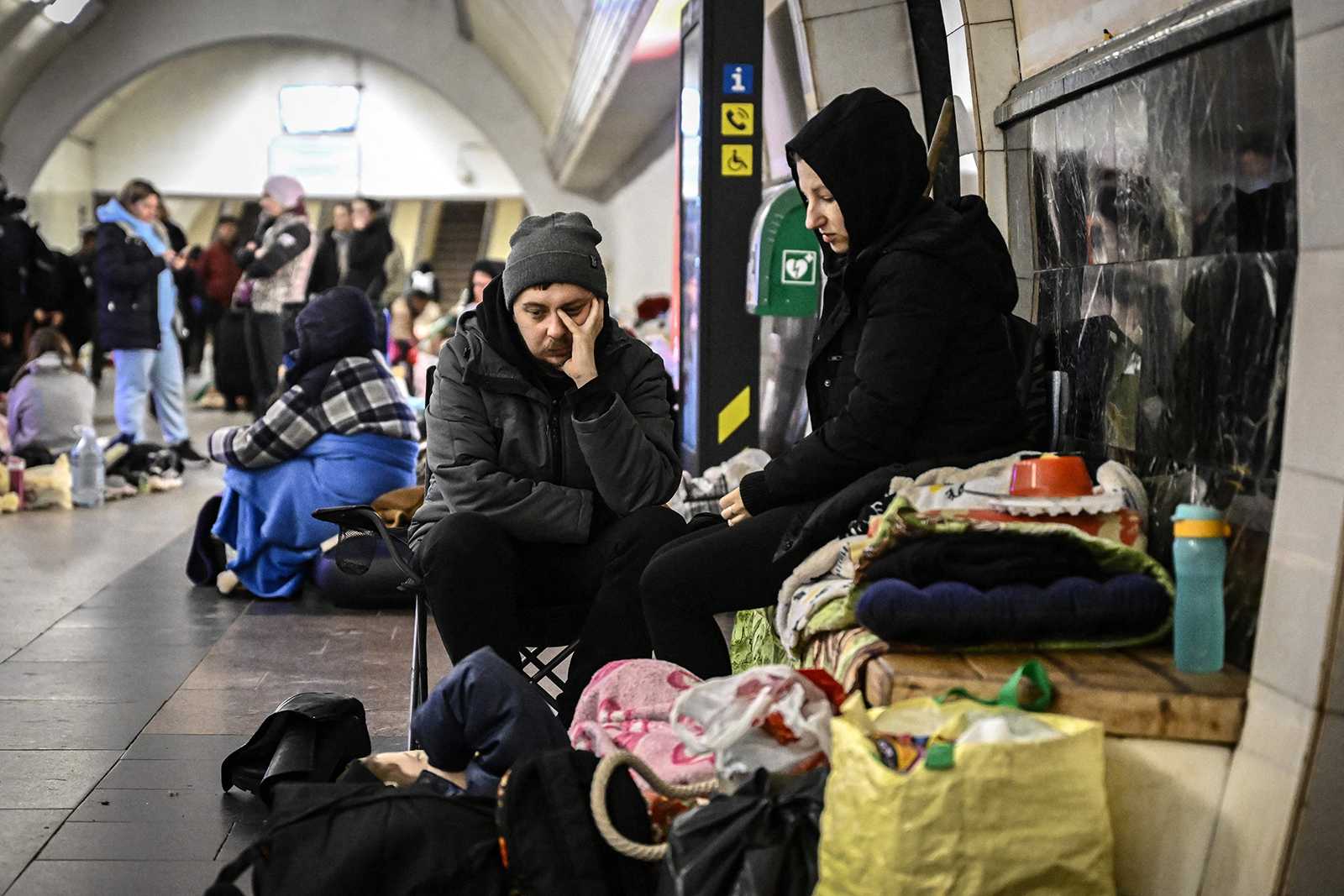Fresno State political science professor Everett A. Vieira III questioned why he was asked to speak about the war in Ukraine during a recent event, but hadn’t been asked about the war happening in Tigray, Ethiopia, the civil war in Syria or the famines happening in Yemen.
“I’m not trying to negate what’s happening in Ukraine. [These are] absolutely horrible human rights violations, war crimes and just victimization of noncombatants and civilians,” Vieira said. “But I don’t want us to lose sight… I don’t want us to only be focused on one conflict.”
On Thursday, Vieira led a workshop hosted by the Cross-Cultural and Gender Center (CCGC) as part of a series called “Conversations that Matter” at the University Student Union. The series focuses on open conversations with the Fresno State community about various social issues.
Vieira’s open discussion focused on the Russian invasion of Ukraine and led to conversations about why the Russian-Ukraine war is getting more media and social attention over other issues.
The event started with a video by Andrew Conteh, a professor at Stanislaus State, where Vieira used to teach, which explained a brief history of why Ukraine and Russia are at war. Vieira followed with a lecture about updates on the war and explained why people should care.
“Anytime a nuclear weapon state gets involved in the conflict, we all as human beings — regardless of your nationality, ethnicity, identity, citizenship — should be concerned,” Vieira said.
People at the event were asked if the world has a bias because of the attention on Ukraine. One attendee asked if other conflicts around the world also involve nuclear weapon states.
Vieria answered no, but pointed out the last conflict between a nuclear power was between the U.S. with Afghanistan and Iraq.
“If we point the finger and are concerned about Russian aggression, I think we need to take a long, hard look at ourselves in the mirror and say we’ve, we [as] the United States, have also engaged in aggression,” Vieira said.
He then gave updates on other issues happening around the world. Since 2011, at least 350,000 people have been killed in Syria, Vieira said, emphasizing “at least” because the cited report only documented casualties.
Vieira noted that over 100,000 people have been recorded as killed in Yemen since 2015, with millions of refugees having fled their homes in South Sudan, and more than 50,000 people having been killed in Ethiopia in the past three months alone.
The conversation led to questions about whether media coverage is putting other world issues to the side. The state of emergency in El Salvador, where 62 people were killed by gang violence in one day on March 26, was brought up in the discussion.
A majority of the people attending the event admitted that they were unaware of the situation in El Salvador.
“It’s not covered in the media, right? But what is? We’re getting robbed at the gas pump,” Vieira said.
He questioned why publications like The Los Angeles Times, The San Diego Union-Tribune and The Fresno Bee don’t focus coverage on El Salvador when “it’s in our backyard.”
People at the event mentioned a prominent El Salvadoran population within the Fresno State community, with one pointing out students who are asylum seekers due to those very issues not being covered.
Vieira also discussed social bias with immigration, because multiple countries have opened their borders for Ukrainians, but many event attendees felt like asylum seekers from other countries were not as accepted.
One person at the event said the Ukraine news coverage shows “what people of color from across the world have experienced for millenia,” while another person said it’s a case of “white privilege.”
“Correlation does not equal causation, but of all the conflicts that I listed up on the board, those all involved brown and Black people. They’re not getting the same kind of media coverage. They’re certainly not getting the same kind of support from the U.S.,” Vieira said.
Political bias was another topic to factor in. When one person asked Vieira what Ukraine offers that other countries don’t, he noted the region’s natural resources and the location as a buffer from Russia for NATO countries.
He said places like Africa don’t affect U.S. oil supplies, and when African countries suffer massacres like the Rwandan genocide, NATO is less likely to offer aid than other non-member regions such as Bosnia and Kosova.
Vieira ended the discussion by encouraging people to write letters to members of Congress or reach out to media sources to advocate for these other issues, as well.
“I think it’s important for students to bring things up in class… Start having these conversations in our communities, in our households and at the dinner table. They’re not always easy, but they’re important,” Vieira said.
Future events for “Conversations that Matter” will be announced by the CCGC on social media accounts. Vieira said topics on political violence such as these will also be discussed in PLSI 149T, a course he’s teaching next semester.




